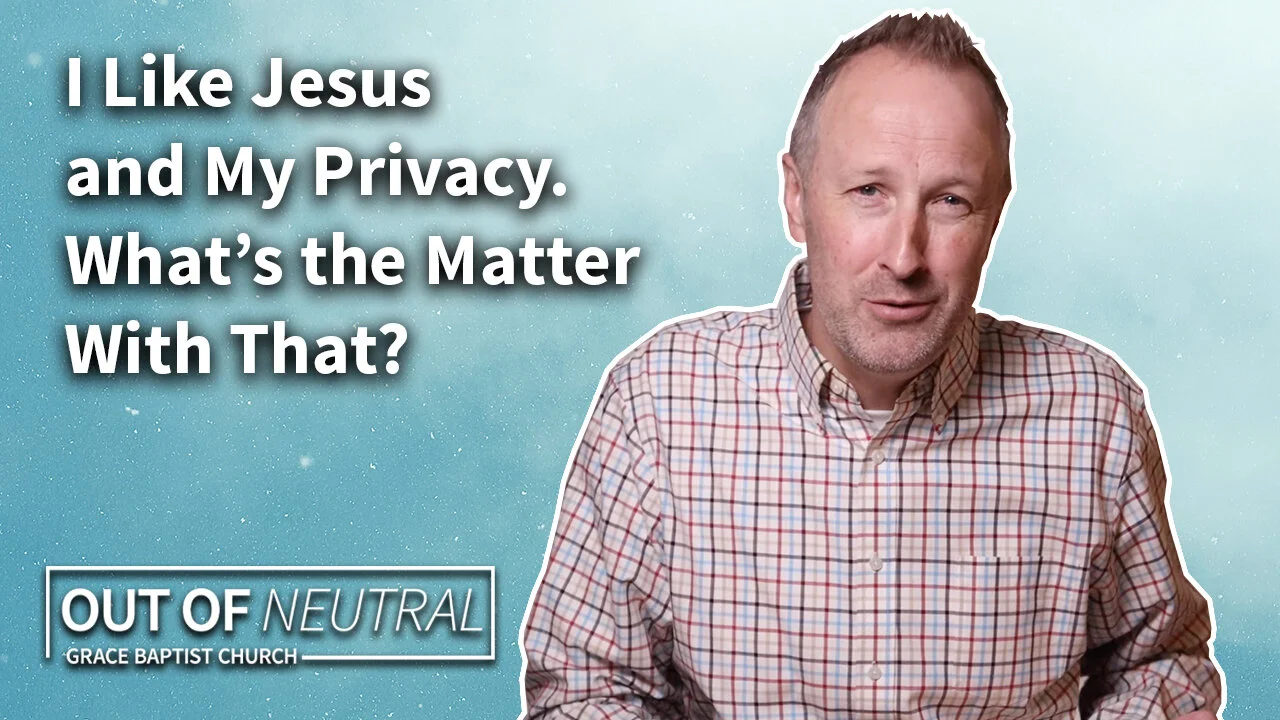Click on the image above for the video of this article or keep reading below for the print version.
We Canadians love our privacy and independence, don’t we? Maybe geography has something to do with it. Canada has just 4 people for every square kilometre of land, while many countries average thousands of people in the same space. Whatever it is, we guard our independence. We value privacy. We keep our distance. We struggle to get too close. Is there anything wrong with that? As long as we let Jesus in, do we have to let other people in, too? Let’s look at what the Bible says.
According to Acts 2:41, on the Day of Pentecost, 3,000 people trusted in Jesus and were baptized. It was an incredible response to Peter’s gospel sermon. At that point, it looked a little bit like a Billy Graham rally except that people were responding in baptism. What they did next was what was so different. Instead of just scattering with a little bit of religious inspiration to add to their lives, the next verse says, “And they devoted themselves to the apostles' teaching and the fellowship, to the breaking of bread and the prayers.” The thing that stands out to me is the word “fellowship.” What does it even mean to devote yourself to that? I remember, as a new Christian, sitting in a church newcomers’ class and the pastor talked about the “priority of fellowship.” To me, it sounded ridiculous. Fellowship, in my mind, was about doughnuts and coffee. It was the Christian version of hanging out. How could that be a priority?
My problem was that I didn’t understand what fellowship really was. I wasn’t really motivated to learn, either. I liked Jesus, but I liked my privacy, too! The basic meaning of the word for fellowship in Acts 2:42 is sharing. People who have come to share in a relationship with Jesus Christ, share their lives in relationship with other Christ-followers. In “The Message,” Eugene Peterson renders verse 42, “They committed themselves to … the life together.” Fellowship is about doing life together. Drawing near to God involves drawing near to other Christians. We get a sense of what that meant for the early church in this passage in Acts. They prayed together (v. 42). They shared to meet each other’s needs (v. 45). They gathered together to worship (v. 46), and they gathered together in each other’s homes (v. 46). This was all the more remarkable because, according to Acts 2:8-11, the crowd was made up of Jews from all over the Roman Empire. They weren’t just gathering for fellowship with their buddies. They were forging new relationships as the family of God and they were deeply committed to them. This isn’t surprising for followers of a Saviour who taught that the heart of God’s will for humanity was love for God and love for neighbour. A child of God needs to be connected to others in the family of God. The problem is that we’ve been conditioned to avoid investing in this kind of fellowship.
In the book, “How People Grow,” Henry Cloud talks about some of the consequences of our aversion to relationships. “Virtually every emotional and psychological problem, from addictions to depression, has alienation or emotional isolation at its core or close to it. Recovery from these problems always involves helping people to get more connected to each other at deeper and healthier levels than they are.” What Cloud calls connecting at deeper and healthier levels is exactly what fellowship with other believers is all about. Without it, we struggle to thrive emotionally and spiritually. Unfortunately, many Christians fail to make the connection. Cloud says, “Ironically one problem we often see in the Christian community is that people get more into religion and less into the connectedness the Bible describes with the result that they get sicker.” People who try to connect with God but refuse to connect with others don’t get better; they often get worse.
Are you devoted to fellowship? If that feels like too high of a bar, let me suggest some baby steps.
1. Show up. Every church has opportunities for fellowship, even in a pandemic. It might not feel like deep connectedness at first, but you can’t deepen relationships with people you don’t know, and you can’t get to know people you don’t meet.
2. Stick around. Opportunities to connect with people usually happen after ‘the event’ is over. At Pentecost, fellowship started after the sermon was done. Make time to connect with people as a part of church life.
3. Open up. You don’t have to start with your darkest secrets or your entire life story, but opening up to others connects you to them. Share a joy or a struggle or something real about you. Fellowship is more about letting others in than it is about doughnuts or coffee.
4. Listen. Fellowship is about sharing which means that it’s not all about you. Take an interest in what other people are going through. Ask questions. Listen patiently. Care. There’s as much healing in giving fellowship as there is in receiving it.
May God give us all grace to be more than Christian than Canadian when it comes to the area of fellowship!
In awe of Him,
Paul












